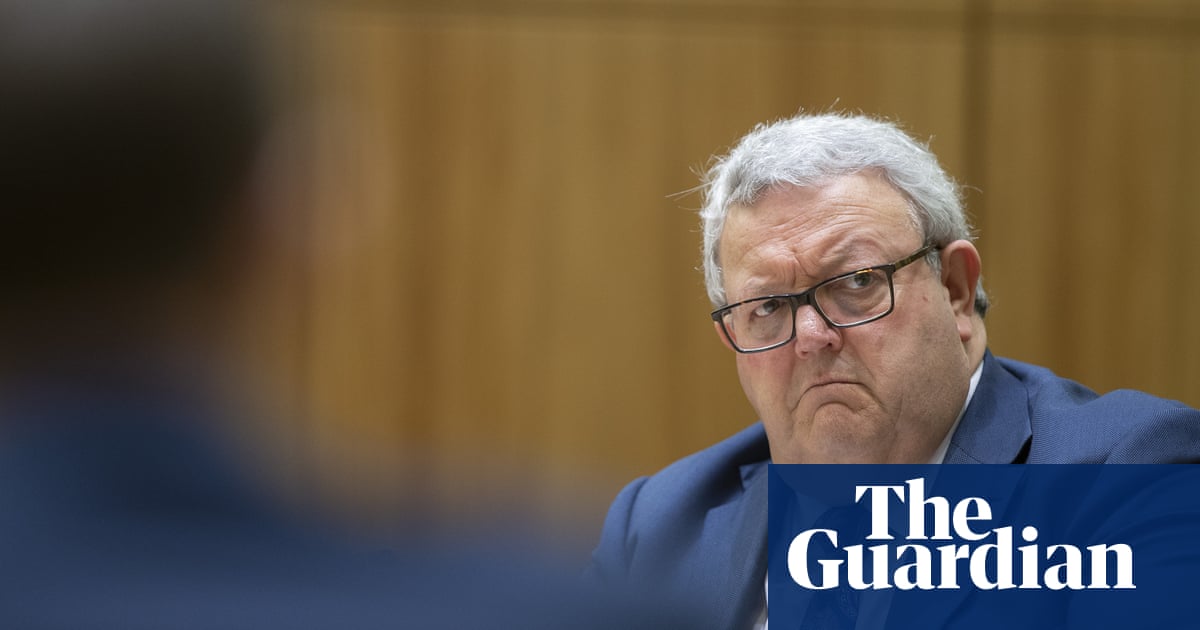New Zealand’s shadow foreign affairs spokesperson faces criticism for response to UN report on Uyghurs
Show caption New Zealand’s foreign affairs spokesperson, Gerry Brownlee, has been criticised for his response to the UN’s report on Uyghur Muslims in China. Photograph: Getty Images New Zealand New Zealand’s shadow foreign affairs spokesperson faces criticism for response to UN report on Uyghurs Gerry Brownlee says report on human rights violations in Xinjiang recognises China is ‘dealing with a terrorist problem’ Charlotte Graham-McLay in Wellington Fri 2 Sep 2022 19.00 BST Share on Facebook
Share on Twitter
Share via Email
New Zealand’s shadow foreign affairs spokesperson said a UN report on the human rights abuses of Uyghurs includes recognition that China is “dealing with a terrorist problem essentially”, in remarks criticised by China analysts.
“It’s good that it acknowledges that there has been a terrorism problem in the particular part of China that the report is on,” Gerry Brownlee, a lawmaker for the centre-right National party, told Radio New Zealand (RNZ) on Thursday in an interview about the UN findings.
In the damning report, the outgoing UN human rights commissioner, Michelle Bachelet, said China had committed “serious human rights violations” against Uyghur Muslims in Xinjiang province which may amount to crimes against humanity.
The report was highly critical of Beijing’s anti-extremism and counter-terrorism justification for its policies in Xinjiang. It found the relevant laws and regulations to be ill-defined and open to the interpretation of individual enforcers. They were used to target people for acts which the UN said were often simply expressions of Islamic belief or a personal opinion, such as having a beard or a social media account.
New Zealand’s foreign minister, Nanaia Mahuta, said in a statement that she was “deeply concerned” at the report’s conclusion that serious human rights violations have been committed against ethnic and religious minorities in Xinjiang, and she “supported calls for China to respond”.
Brownlee said he hoped China would “engage appropriately” with the report’s recommendations.
But he told RNZ he was pleased that the dossier “acknowledges that there has been a terrorism problem in the particular part of China that the report is on”.
Brownlee, who is a former foreign minister, said China’s anti-terrorism laws were comparable to New Zealand’s and those of other countries.
“I think it’s the implementation of those laws and the consequences for people who are caught up in that that is the issue here,” he said.
“I think the recognition by the report that they are dealing with a terrorist problem essentially is helpful in getting some sort of a better arrangement for people whose human rights are being constrained.”
Analysts said they were alarmed by Brownlee’s claim that China’s actions were a response to terrorism threats in Xinjiang and urged the National leader, Christopher Luxon, to clarify his party’s position.
“Do they consider camps and widespread population imprisonment as an acceptable anti-terrorism strategy?” said Rodney Jones, an economist and Asia analyst from Wigram Capital Advisors.
“This affects New Zealand’s national security as well as our moral position and New Zealand’s place in the world,” Jones said.
New Zealand has in recent years wrestled with finding a model for the small, south Pacific country to criticise its much larger trading partner when required, while balancing its economic interests and relationships with allies in the West.
The Labour prime minister, Jacinda Ardern, has at times attracted rebukes from China for criticising its human rights record and sounding alarms about its ambitions in the Pacific, but has also emphasised the two countries’ friendship and New Zealand’s independent foreign policy.
The previous government, led by National until 2017, had been more reluctant to admonish China publicly, and it was not clear whether Brownlee’s remarks were accidental or indicated a softening of the party’s approach.
The director of the New Zealand Contemporary China Research Centre at Victoria University, Jason Young, said Brownlee’s attempts to balance the claims of China’s government and those of the UN reflected an old playbook for New Zealand’s dealings with the Asian power, but “played terribly” in this case.
“It really undermines New Zealand’s position in the world to make that kind of argument,” he said.
Brownlee also said, in an interview with Newsroom, that his country should not “wave a banner of purity” over the UN report’s findings of forced labour in Xinjiang, given poor working conditions for some of New Zealand’s seasonal workers.
The comparison was “ridiculous”, Young said.
Young and Jones said Brownlee’s comments were at odds with his own previous remarks on Xinjiang.
In April 2021, Brownlee had said he was “more concerned now than I have been at any point along the continuum of concern about Xinjiang” after viewing a presentation by the Chinese embassy in Wellington that appeared to dismiss and downplay international suspicion about the treatment of residents.
A spokesperson for Brownlee did not respond to a request for an interview.











